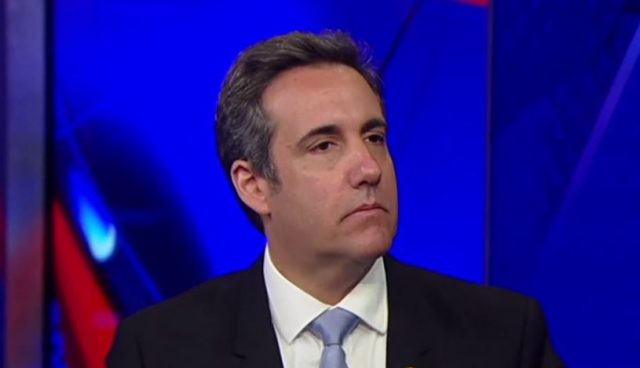
The recent FBI raid of Michael Cohen‘s office and home certainly seem to spell trouble for President Donald Trump‘s personal lawyer. What that means for Trump himself, however, remains to be seen. Several figures connected to Trump, like Michael Flynn and Rick Gates, have already cut deals with Special Counsel Robert Mueller‘s office, but when it comes to Trump’s inner circle, it doesn’t get much bigger than Cohen. Cohen showed signs of strain when CNN’s Don Lemon asked if he was worried.
“I would be lying to you if I told you that I am not,” Cohen said. “Do I need this in my life? No. Do I want to be involved in this? No.”
These recent events could certainly pressure Cohen into making a deal of his own. Now, due to his professional relationship with the president, there’s plenty that Cohen wouldn’t be able to disclose due to attorney-client privilege, but there’s also plenty of information that would still be up for grabs.
As Law&Crime recently addressed, there is a crime-fraud exception to attorney-client privilege, which means that if the communication was used in furtherance of a crime or fraud, or to cover one up, it wouldn’t be protected.
Basically, that means that if Trump was using Cohen to help him break the law — for example, creating a shell company to pay off a former adult film star to protect his presidential candidacy, in violation of campaign finance laws — communications related to that may very well be within the realm of information that Cohen could disclose to prosecutors.
This issue came up in Paul Manafort‘s case, where the crime-fraud exception allowed Mueller to call Manafort’s attorney to testify before a grand jury. Mueller argued that Manafort and Gates used the attorney to unwittingly help them submit paperwork to the government containing false statements.
Now, what is protected, and what could be very frustrating for prosecutors, is communication regarding past crimes. If Trump met with Cohen to discuss any past actions — for example, possible illegal campaign activity involving Russia — Cohen would not be allowed to talk about it. In fact, not only would Cohen be able to use privilege as an excuse not to discuss those communications, legal ethics rules would forbid him from doing so.
Nevertheless, if anyone else was present for conversations where past illegal campaign activity was discussed, that would break the privilege unless Cohen was representing them too. Additionally, if such conversations involved ongoing criminal activity, Cohen would be allowed to discuss it with Mueller.
Of course, just because Cohen would legally and ethically be allowed to flip and reveal a limited amount of dirt on Trump if he so desired, whether or not he will is an entirely different story. The one word that has been used to best sum up Cohen’s relationship with Trump is “loyalty.” Cohen has stated that he will always do what is necessary to protect Trump.
Int the wake of the FBI raid, that loyalty may be put to the test.
Ronn Blitzer is the Senior Legal Editor of Law&Crime and a former New York City prosecutor. Follow him on Twitter @RonnBlitzer.
[Image via Fox News screengrab]